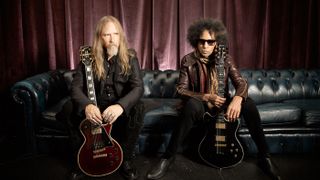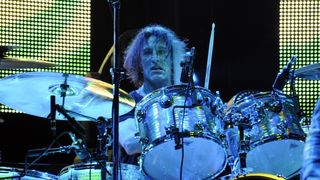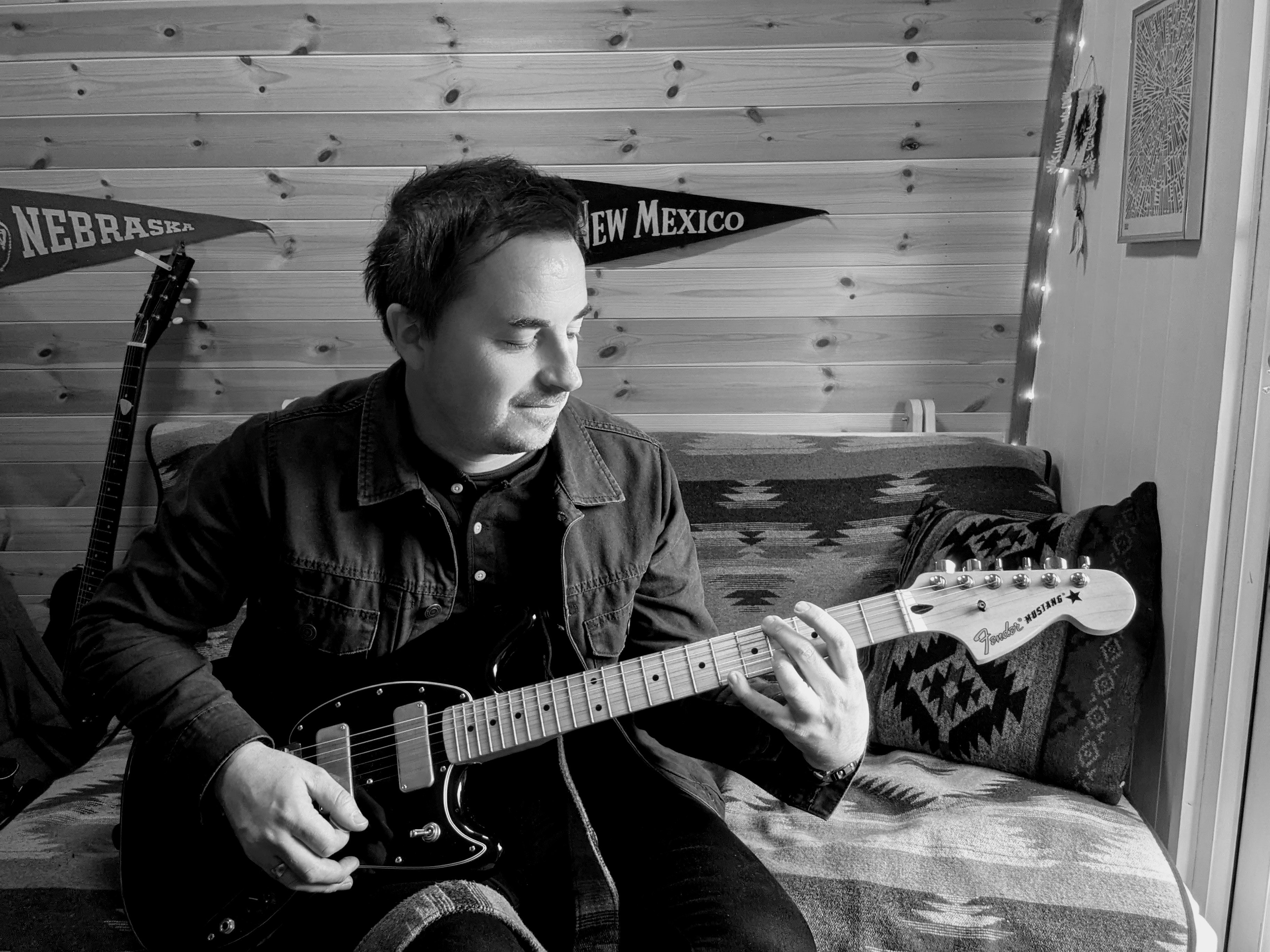Alice In Chains laugh when they’re together. A lot. However mired their story as a band has been in loss and struggle, they’ve maintained and strengthened a bond that’s clear to see spending time with them ahead of their UK live return in Leeds.
And they have a big reason to be cheerful; new album Rainier Fog validates yet again that their 2006 return with William DuVall began one of the great comebacks of rock history, even though, as DuVall admits to us, 2009’s Black Gives Way To Blue was a band “fighting for our right to exist”.
DuVall reveals to us before we leave that they used an acoustic on the record that formerly belonged to their friend Chris Cornell
But it was also their new era as a full two-guitar dynamic; DuVall came into the band when his own trio Comes With The Fall backed Cantrell on the tour for his 2002 Degradation Tour solo album. While there’s a strong case to be made for Cantrell as the greatest lead player of the 90s alternative scene, DuVall’s achievement in thriving alongside him over their three albums together is easy to take for granted.
For this one, there’s a clue in the title. The 14,000-foot Mount Rainier is a towering landmark for Pacific North West residents and Alice In Chains returned home to Seattle for the initial tracking of the album. A place where ghosts of the past reside, even in the summer climes they spent there.
Recording took place at the studio formerly known as Bad Animals where the band laid down what would be their last album with Layne Staley in the fall of ’95. But they carried the legacy of a more recent loss with them too. DuVall reveals to us before we leave that they used an acoustic on the record that formerly belonged to their friend Chris Cornell, and was a songwriting guitar for him. The past is never far away from Alice In Chains, but it’s being carried proudly on into the future…

Going home
The album title conjures up the Pacific north west and the band’s roots. Was that on your mind a lot on this record?
William: “We were able to have more fun through the entire process than I think we’ve had before and I think going to Seattle had a little bit to do with that. There’s this thing of let’s try it, it will either be really, really bad in terms of baggage and stuff you’ve got to confront or it will be really, really cool. And it turned out to be really, really cool.
There were ghosts but they were benign ghosts... Anytime we felt ourselves confronting that stuff it was positive not negative
“Seattle in summertime becomes one of the most beautiful cities on earth during those few months. And going to this studio where they’d had this history and other bands had this history – Superunknown was done there. So there were ghosts but they were benign ghosts. I hesitate to say friendly ghosts but they were. Anytime we felt ourselves confronting that stuff it was positive not negative. It helped fuel instead of restrict.”
Jerry: “It made sense because we made a conscious decision and said, ‘Let’s go home to Seattle and make this record.’ We had history at the studio, we recorded the self-titled record there and that’s when it was Bad Animals – Heart’s studio. It was cool to come back there after many years and still have the place be there and be home in Seattle in the summer, which is fucking amazing – it’s the best time of the year to be there.
“I had that song [the title track] and it seemed to make sense to me that we should call it that. And that song is an all-encompassing song as well; a life and a community where we come from. It’s important to us, looking back at where you come from and also looking at how far you’ve come. Being proud of that and owning it all.”
William: “And I think we’re getting to a stage, especially with all the things that are going on in the world with all these losses of people that have meant so much, I think just getting to a stage of realising, man, we’re not going to be doing this forever.
“No matter how you look at it, this is all ephemeral. We have to take our pleasures while we can. We have to not take this for granted. And you’d think that would be very baked into this group anyway, and it kind of is but I do think it takes repeated slaps in the face to really hammer that home. And it was very well hammered home this time.”
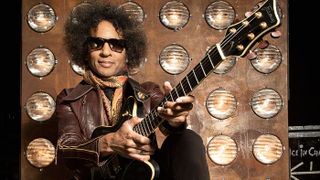
Community
It’s poignant as well because you come from a remarkable community of bands that have now become classic rock for a generation. And it’s a community that has experienced loss again even in recent years.
Jerry: “The middle section of that song touches on that. I was personally talking about Layne, but all of the fellows that we’ve lost and all of our friends are included in that section.”
You’ve both come from bands where you’re the main guitar player, how has that journey as a two-guitar band been for you in the last 12 years?
Alice has always been a two-voice band and that’s why the transition works, because the mechanics work
William: “It’s one of these things, man, we can both do all of whatever we want to do on a record. It becomes a thing of trying to create room or leave room for one another out of respect and admiration. What ends up happening when you do that is something that you couldn’t have achieved on your own if you’d elected to do everything. It would sound different so where we find these places to leave room for one another it really elevates the material, at least in terms of making it something it would never have been otherwise.”
Jerry, did William’s presence change your songwriting process when he joined the band?
Jerry: “No it didn’t change my style or writing. He’s his own unique dude and he’s got his own vocal sound. The way he writes and plays guitar is extremely different from me. Both rock so that’s cool but he adds elements of what he does but I’ve been doing things the same way for 31 years so I’m not really gonna change now. So I wouldn’t say it really changed anything about my writing style but it’s nice we can incorporate a lot more with William because he plays and he’s a really good guitar player. It gives us a little more opportunity.
“Layne started up guitar and wrote a couple of riffs and wrote a couple of really important tunes in our catalogue; Hate To Feel, Angry Chair and Head Creeps, those are the three songs that he wrote on guitar. And he would play a little bit but, actually, William is kind of like I am. We’re both guitar players at heart and we never intended to be lead singers. We were happy to be playing guitar, writing tunes and singing backups.
“He’s had a little more experience fronting his band than I had but we’re kind of cut from the same cloth in that respect just by circumstance. And this requires both of us to guide the ship vocally. Both of us will equally be the lead singer. Alice has always been a two-voice band and that’s why the transition works, because the mechanics work, even though the personnel has changed.”
Them tones
William and Jerry’s 2018 rig highlights
Voices
With the importance of vocals in mind – do you believe it influences your approaches to guitar leads?
William: “Yes and possibly even more so in this band, just because there’s something about living and recording in this environment that brings that out. I used to think of solos more as a ‘rave up’, that expression you guys have over here that I really like. You’re just going for it in this gonzo moment and you may never play it that way again. You’re not really worried about duplicating it again that way onstage.
“But then there were a few songs, even with the Comes With The Fall records, where it was even more of a composed solo and I think that approach lends itself better to this band. Where you think of the solo as another part of the composition so I labour over it a little bit more than I used to most of the time.
I do approach it as a writer in the band, I kind of approach solos in the same way; I write them
“It can even become a little bit of orchestration because in the So Far Under solo there are parts where a lower or higher octave come in and I’m playing the same thing. You hear different things coming at you from different sides of the stereo spectrum during that little solo. So it’s a cool thing and a completely valid approach that bakes the solo into the song. You really couldn’t play it another way because if it’s done right and it really does become part of the composition then you want to stay faithful to it.”
Jerry: “I always half-heartedly joke that I wish I was a better guitar player so I could play some more blistering technical shit but I’m also totally happy that I didn’t do that. I made a decision to do it the way I’ve done it and I do okay. But I do approach it as a writer in the band, I kind of approach solos in the same way; I write them. I’ll do it in the same way I’ll do vocals and lyrics; a lot of times I’ll hum stuff and then start playing it.
“So a lot of my solos will start with my mouth, they won’t start with the guitar. I’ll be singing – it’s like horn runs or something. Then I’ll start replicating them on guitar, do a bunch of shit and then pick out the best bits and construct them.
“Once I really feel like I’ve got it pretty much together then I’ll perform them for real. But there’s a construction phase to a lot of my solos and I’ve always looked at solos as being a unique part of the song. And it can really lift a song to a place it hasn’t been before. And being that our band is so vocally focused it makes more sense for me to continue that process in the solo sections that I write.”
This is Nick Raskulinecz’s third album with the band, and obviously you want to bring in new things each time. We heard it was his idea to bring a cigar box amp into the studio?
Nick’s a gear head, he’s great. He’s that kid you smoked pot with in junior high
Jerry: “He’s a gear head, he’s great. He’s that kid you smoked pot with in junior high and went over to his house and jammed out in his room to Rush records. We all did that and he’s that guy too. And he loves it. He’s still that way today and that’s why it’s so fun to work with him and why he makes great records with bands, because he really fucking cares about the rock.
“We were up in Seattle and I think Nick went down to the Pike Place Market and they had these little cigar box amps and he bought one. It was like $150 and we used that thing on four or five songs on this record, as a thickener and it’s not that it sounded great, it’s like a Pignose-y kind of sound, that kind of honky, fart kind of amp, but when you mix it into something like on Drone especially, when those powerchords hit [hums riffs], it’s so fucking ratty and nasty because that cigar box amp is in there. It’s not that you can hear it and that’s why it sounds great, but when you take it away you know it’s gone. It’s like the balls went away.”
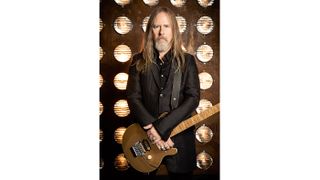
Baritone zone
Baritones have always been important in the studio for you for a rhythm foundation, when did that start?
Jerry: “I have to give credit for that to Dave Jerden. When we were recording Facelift and Dirt, he’s the guy who turned me on to them. He had a couple of Jerry Jones baritones and we would use them to thicken up the choruses, just a little bit behind it. A similar thing again in that it’s not so much that you hear it but you know when it’s not there when you take it away.
“And I learned a lot from Dave as far as layering, doing multi-tracks and doing the same thing with different amp combos for frequency and painting a picture. And I’ve picked that up and kind of expanded on that throughout our career.”
One of the interesting things about your playing is the way you’ll contrast upbeat parts with discordance…
Jerry: “A mix of ugly and beautiful.”
Exactly, did that just gradually come into your playing subconsciously over time when you were younger?
From the get-go that’s always been a part; something really powerful, dark, ugly, minor and then shove that into a major
Jerry: “I think we’ve always had that and I think that’s one of the hallmarks of Alice. The fact that you can take something so nasty, something tilts your perspective a little like Check My Brain or something. I still get seasick listening to that and that’s my Sabbath influence.
“From the get-go that’s always been a part; something really powerful, dark, ugly, minor and then shove that into a major. Or having a major over a minor – that kind of rub. That’s been a hallmark.
“I’d probably give some of that credit to my choir teacher in high school. I always loved classical music but I was kind of raised on country. My mom and dad were both huge country music fans so that was one element but my teacher, Joanne Becker was her name and I run into her every once in a while and I just ran into her recently, but she used to have us do dark quartet baroque-style stuff. We did a lot of that stuff in high school and we actually did state competitions. So I think a lot of that stuck. And she was also a rocker, so she would play Police records and all sorts of cool music in class. I think some of that darker classical stuff stuck a little, too.”
All I Am at the end of the album is certainly dark, and a very emotionally heavy song. What does it mean to you?
Jerry: “That’s a cool song, man. When we recorded it, all of us knew it was the song to end the record on because it’s that big seven-minute kind of epic thing and also it’s a tear-jerking lyric.
“It’s written from the perspective that every one of us has at some point in our life, especially as you get older and you’ve been around for a while you’re going to see some shit and go through some shit. You’ll have to question your faith moments throughout life and that’s what that song speaks to I guess. Not in a bad way, this is what I am for better or for worse.
“The character asks, ‘Is this all I am?’ The drudgery of doing something for 31 years. But it’s also a beautiful thing to have been committed to do that. Everything has costs. No matter what you do in life, there’s a price for everything. Maybe [it’s] questioning the prices and whether it’s still worth it. But obviously it is because I’m still here doing it!”
Rainier Fog is out now via BMG.
